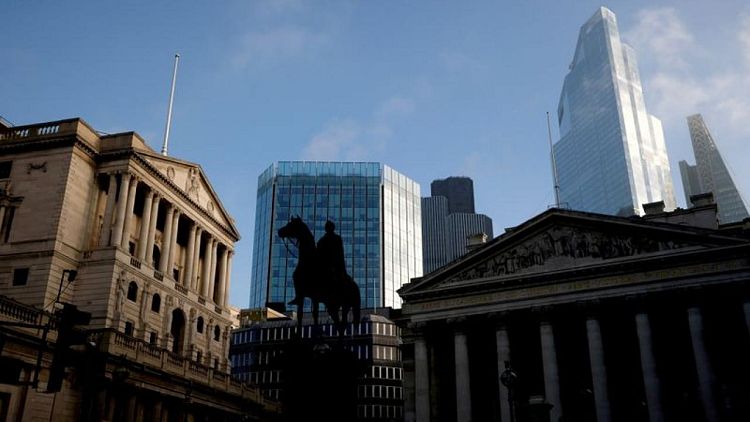By David Milliken
LONDON -The Bank of England expects to have a large but somewhat leaner balance sheet when it starts to run down its 895 billion pound asset purchase programme, and will take steps to ensure this does not push up short-term rates.
Andrew Hauser, the BoE's executive director for markets, also said financial markets should not expect the central bank to intervene as aggressively in future as it did in March 2020 when fear of the COVID-10 pandemic pushed up bond yields.
Last month the BoE announced that it expected to stop reinvesting the proceeds of maturing bonds from its quantitative easing programme once it had raised interest rates to 0.5% from their current 0.1%. Policymakers would consider outright sales once they had raised the BoE's main interest rate to 1%.
Governor Andrew Bailey told lawmakers last week that he did not expect this policy to push bond yields noticeably higher, and that it was aimed at ensuring the BoE continued to have room to undertake asset purchases during future crises.
Hauser, in a speech to the International Finance and Banking Society, said he expected the size of the BoE's balance sheet -- which reflects QE purchases, banknotes in issue and other market operations -- to vary as the BoE smooths out the economic cycle.
Overall the size of the BoE's balance sheet would fall but remain larger than before, he added.
"We expect to adopt a market-led approach, in which we allow reserves to fall as QE assets roll off, but stand ready to replace any demand shortfall that might arise through shorter term open market operations," he said in a speech published on Monday.
"This should allow us to run a 'lean' balance sheet - giving markets scope to function - without suffering excessive upward pressure on short-term rates."
Hauser also said the scale of the BoE's intervention in March 2020 - when it restarted bond purchases to tackle market dysfunction as well as broader economic weakness caused by the pandemic - was not intended to set a precedent.
"Market participants should therefore build stronger self insurance, and expect greater regulatory scrutiny, in exchange for central bank access," he said.
